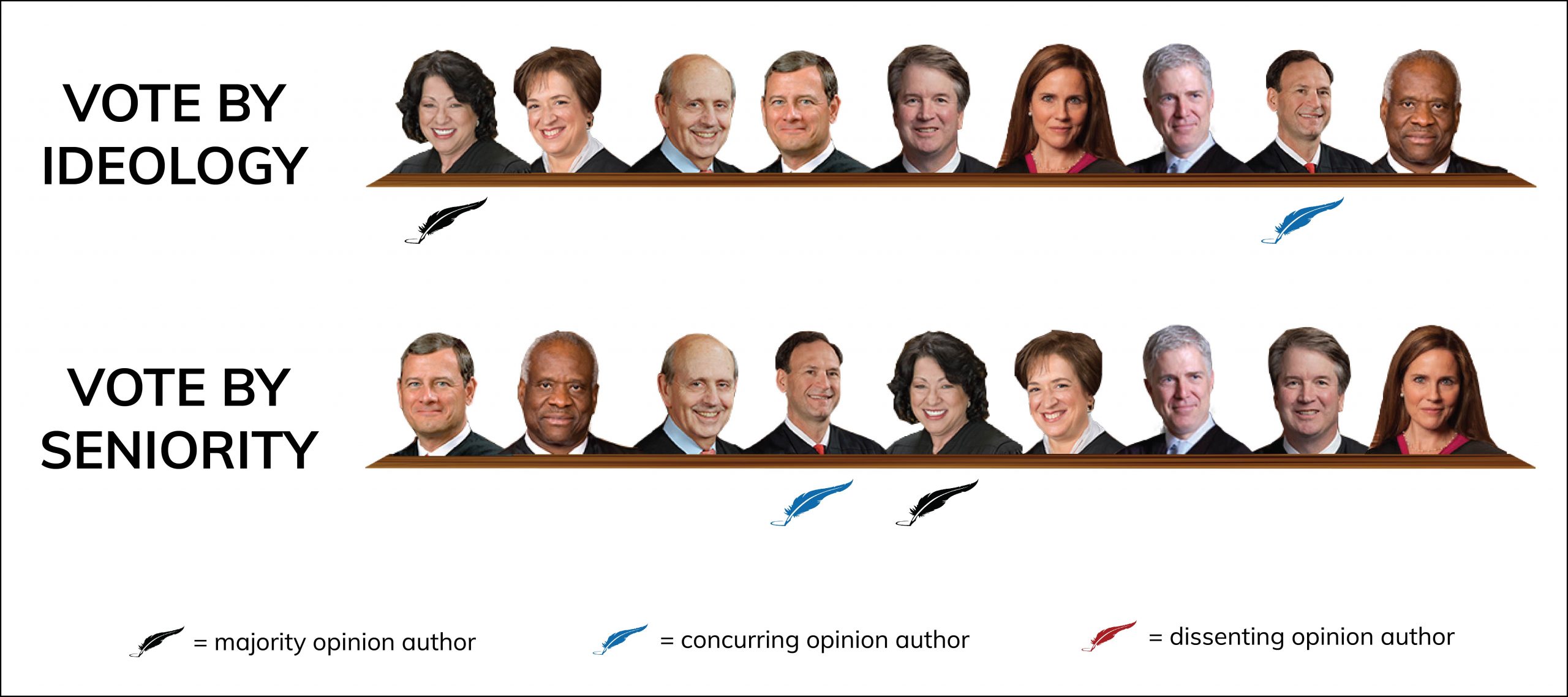Opinion analysis
Supreme Court sides with Facebook in narrowing the federal robocall ban

on Apr 1, 2021 at 9:45 pm

On Thursday, the Supreme Court unanimously sided with Facebook in a lawsuit over unsolicited text messages the social-media giant sent to a cellphone number in the company’s database. In an opinion authored by Justice Sonia Sotomayor in Facebook v. Duguid, the court adopted a narrow reading of a key definition in the federal ban on robocalls and robotexts to cellphones. It held that to qualify as an “automatic telephone dialing system” under the Telephone Consumer Protection Act, a device must have the capacity either to store, or to produce, a telephone number using a random or sequential number generator — a type of obsolescent marketing technology.
The decision is likely to have major implications for the future of telemarketing. Of most import, it means that the act does not ban the use of now-dominant predictive dialing technology that can call or text targeted customers, including technology that relies on the massive amounts of data now collected on American consumers, so long as an artificial or pre-recorded voice is not used. In so holding, the justices made clear that it’s the job of Congress, not the court, to update statutes in the face of technological change.
Enacted in 1991, the TCPA responded to widespread consumer outrage over abusive telemarketing calls. The part of the statute at issue in Duguid bans “using any automatic telephone dialing system or an artificial or prerecorded voice” to call or text cellphones, as well as emergency telephone lines, hospital patient rooms, pagers, and phones that charge for incoming calls, among others. The Federal Communications Commission, state attorneys general and private parties are authorized to sue those who don’t comply with the law; the penalty is up to $1,500 per call.
Since the passage of the TCPA, despite dramatic changes in telemarketing technology, the definition of automatic telephone dialing system has remained the same: “equipment which has the capacity — (A) to store or produce telephone numbers to be called, using a random or sequential number generator; and (B) to dial such numbers.”
Noah Duguid sued Facebook under the act because he received several text messages from the company, alerting him that someone had attempted to access his Facebook account from an unknown browser — even though Duguid never had a Facebook account or gave the company his number. Those messages were sent to him using a form of automated technology, but one that did not use a random or sequential number generator.
Sotomayor’s opinion for the court followed a strikingly textualist approach, which focused on whether the act bans equipment that does not use a random or sequential number generator. The court’s answer: “It does not.”
Facebook had argued that to qualify as a proscribed autodialer, the equipment must use a random or sequential number generator — something its technology does not do. As a matter of syntax, it contended, the clause “using a random or sequential number generator” modifies both verbs, “store” and “produce.” Duguid had argued that a number generator was not necessary on the basis that “using a … number generator” applies only to “produce.” His key argument: It makes no sense to talk about storing numbers using a number generator. Read as Duguid would, the statute would more broadly ban the use of equipment with the capacity “to store … numbers to be called” and to dial them.
The court concluded that the most natural reading of the text confirmed Facebook’s view.
First, Sotomayor reasoned that “[u]nder conventional rules of grammar, ‘[w]hen there is a straightforward, parallel construction that involves all nouns or verbs in a series,’ a modifier at the end of the list ‘normally applies to the entire series.’” That passage quoted Reading Law: The Interpretation of Legal Texts by former Justice Antonin Scalia and Professor Bryan Garner – who argued the case on behalf of Duguid. Under this interpretive rule (called the series-qualifier canon), number generator should apply to both “store” and “produce,” making a number generator a necessary component for equipment to qualify as an autodialer.
Second, the court concluded that statutory context confirmed that reading. Why? The TCPA made it unlawful to use an autodialer to call certain sorts of numbers — emergency telephone lines, those for which the called party is charged for the call, etc. — and to tie up two or more lines of a multi-line business. “Expanding the definition of an autodialer to encompass any equipment that merely stores and dials telephone numbers would take a chainsaw to these nuanced problems when Congress meant to use a scalpel,” Sotomayor wrote. Specifically, the court feared that Duguid’s interpretation “would capture virtually all modern cell phones,” which can store and dial numbers — meaning that “ordinary cell phone owners” could face steep TCPA liability “in the course of commonplace usage, such as speed dialing or sending automated text message responses.”
The court rejected Duguid’s counter-arguments, including his claim that it makes no sense to talk about equipment that stores numbers using a random or sequential number generator, on the grounds that they did not overcome the “clear commands” of the statutory text and context. It also downplayed Duguid’s warnings that accepting Facebook’s interpretation would “unleash” a “torrent of robocalls” because the act still bans calls made with an automatic or prerecorded voice.
Despite the heavily textualist bent of the opinion, its institutionalist closing point is perhaps its most important: “Duguid’s quarrel is with Congress …. ‘Senescent’ as a number generator (and perhaps the TCPA itself) may be, that is no justification for eschewing the best reading of [the act].”
Justice Samuel Alito concurred in the judgment, but wrote separately to take issue with the court’s approach to textualism — particularly its “heavy reliance” on the series-qualifier canon. “The Court refers to this canon as a ‘rul[e] of grammar,’” he pointed out. And yet, quoting Scalia & Garner back at the majority, he noted that interpretive canons “are not ‘rules’ of interpretation in any strict sense but presumptions about what an intelligently produced text conveys.”
Alito continued:
To the extent that interpretive canons accurately describe how the English language is generally used, they are useful tools. … [But w]hen this Court describes canons as rules or quotes canons while omitting their caveats and limitations, we only encourage the lower courts to relegate statutory interpretation to a series of if-then computations. No reasonable reader interprets texts that way.
We may all be textualists now, but Alito’s concurrence is the latest sign of internal disagreement on the court about exactly what it means to be a textualist. A similar rift emerged between Alito and Justice Neil Gorsuch in last year’s decision in Bostock v. Clayton County. Regardless, if more is to be done to curb telemarketers’ use of targeted, predictive dialing — or whatever technologies future advances bring — the ball is now clearly in Congress’ court.


